
How Does Gut Influence Post-Workout Recovery?
Key Takeaway
- Gut health is pivotal in post-recovery by supporting digestion, nutrient absorption, and inflammation reduction.
- The gut-brain axis impacts mental clarity and emotional well-being during recovery, emphasizing the connection between gut balance and cognitive function.
- Nutrient absorption, particularly after workouts, is closely tied to gut health. It influences muscle repair and energy restoration.
- Short-chain fatty acids (SCFAs) produced by gut bacteria reduce inflammation and repair the gut lining, expediting recovery.
- Gut-friendly diets, stress management, and proper sleep are key to improving recovery and overall performance.
What is Gut Health and Its Influence on Post-Recovery?
The Gut Microbiome’s Role in Healing and Recovery
When your gut microbiome is balanced and healthy, your body can bounce back more quickly after physical exertion or illness. Focusing on gut health can reduce inflammation and improve how your body heals, leading to faster recovery times. As these gut microbes break down complex carbohydrates, proteins, and fats, they ensure that your body absorbs the nutrients it needs for muscle repair and energy restoration, showing how vital gut health is to post-recovery success.
How Gut Microbes Aid Digestion and Recovery
Impact of Gut Health on Mental Well-being During Post-Workout
Gut health is essential not only for physical recovery but also for mental well-being. The microbes in your gut produce critical neurotransmitters, such as serotonin and dopamine, which directly regulate mood. About 90% of serotonin, the “feel-good” chemical, is made in the gut. When your gut microbes are balanced, they support the production of these chemicals, helping to reduce stress and anxiety. This directly impacts gut influence post-workout recovery by promoting a positive mental state.
Additionally, a healthy gut regulates the body’s inflammatory response. Chronic inflammation, often caused by an imbalance in gut bacteria, is linked to mental health challenges like depression and anxiety. A balanced gut microbiome promotes mental clarity and emotional stability by keeping inflammation in check, both crucial during recovery. This balance shows how gut influence post-workout recovery not only aids physical healing but also strengthens mental resilience.
In summary, the strong connection between your gut and brain means that optimizing gut health influences the speed of your physical recovery and how you feel mentally throughout the process. A healthy gut can boost mood, reduce stress, and improve mental clarity, making your gut influence post-workout recovery more effective and enjoyable.
Gut Health and Nutrient Absorption Post-Workout
How the Gut Processes Nutrients
Impact on Muscle Repair and Energy Restoration
The Role of Short-Chain Fatty Acids (SCFAs) in Post-Recovery
What are SCFAs, and How Do They Benefit the Body?
As we continue exploring how gut health influences post-recovery, it’s important to delve into the specific substances that make this process possible. One such group is short-chain fatty acids (SCFAs), which are byproducts of fiber fermentation by gut bacteria. These potent molecules—acetate, propionate, and butyrate—are produced when healthy gut microbes break down dietary fiber. But SCFAs do more than aid digestion; they play a pivotal role in maintaining overall gut health and optimizing recovery.
SCFAs are essential for maintaining the integrity of the gut lining, reducing inflammation, and even providing an energy source for muscle repair. Essentially, they bridge the gap between gut influence post-workout recovery and physical healing, ensuring your body can recover efficiently after physical exertion.
 SCFAs: Reducing Inflammation for a Speedier Recovery
SCFAs: Reducing Inflammation for a Speedier Recovery
One of the standout SCFAs, butyrate, is particularly important due to its potent anti-inflammatory properties. After strenuous exercise or any form of physical exertion, inflammation can build up, leading to muscle soreness and slower recovery times. Butyrate’s ability to reduce inflammation helps ease these symptoms, making your recovery quicker and more comfortable.
In addition to its anti-inflammatory role, butyrate is crucial in repairing the gut lining, which may become compromised after high-intensity workouts. A strong gut lining ensures that your body can continue absorbing nutrients efficiently, demonstrating how gut health influences post-recovery by speeding up tissue repair and preventing long-term damage.
By understanding the key role of SCFAs, you gain insight into yet another way gut health influences post-recovery. The combined effects of reducing inflammation, maintaining gut integrity, and supporting energy restoration make SCFAs a critical factor in the overall recovery gut health and recovery.
| Group | Diversity | SCFA Abundance |
|---|---|---|
| Active Individuals | Higher | Varied |
| Athletes | Highest | Reduced |
| Non-Athletes | Lower | Stable |
As we’ve uncovered, the connection between them is intricate and far-reaching. From aiding nutrient absorption to reducing inflammation through SCFAs, your gut plays a crucial role in how well your body recovers. But the story doesn’t end there. The gut is also the cornerstone of a strong immune system, a vital factor in post-recovery. In the next section, we’ll dive into the immune function, exploring how gut health influences post-recovery by boosting immune responses and protecting your body from illness, especially after physical exertion.
Immune Function: Gut Health’s Role in Post-Workout Recovery
Connection Between Gut Microbiome and Immune Response
While gut health is often associated with digestion and nutrient absorption, its influence stretches much further, particularly concerning the immune system—a critical component of post-recovery. In fact, a significant portion of your immune strength comes directly from the gut. This connection between gut health and immunity is vital in how well your body recovers from physical exertion and defends itself against illness. Let’s explore how gut health influences post-recovery by bolstering your immune defenses.
How a Healthy Gut Prevents Illness and Enhances Recovery
Maintaining a balanced gut microbiome is key to regulating immune responses. A healthy gut strengthens the immune system, making it more effective at fending off infections and promoting faster healing. This becomes particularly important during recovery when a weakened immune system can prolong healing or lead to setbacks like colds or infections. Moreover, a well-functioning gut enhances micro-tear healing in muscles—which is common after intense workouts. This improved immune function showcases yet another way gut health influences post-recovery, allowing you to recover more efficiently and maintain a consistent fitness routine.
Individuals with a strong gut microbiome and robust immune systems are less likely to experience frequent illnesses, leading to better physical performance and quicker recovery. Whether you’re an athlete or enjoy staying active, supporting your gut means strengthening your immune system and improving your body’s ability to recover from physical stress and injury.
Gut Dysbiosis: The Silent Threat to Recovery
While we’ve discussed how gut health influences post-recovery through nutrient absorption and immune support, it’s important to recognize that not all gut-related processes run smoothly. Sometimes, the gut becomes imbalanced, leading to a condition known as dysbiosis. This silent threat can undermine your recovery efforts, making it harder for your body to heal and restore itself. Whether you’re active or just looking to enhance your overall well-being, understanding the effects of gut imbalances is crucial to optimizing your recovery.
What is Dysbiosis?
Dysbiosis is an imbalance in the gut microbiome, where harmful bacteria outnumber beneficial ones. This disruption can arise from various factors, including a poor diet, chronic stress, overuse of antibiotics, or lack of physical activity. When this delicate balance is thrown off, the negative effects can ripple through the body, hindering recovery and impacting overall well-being.
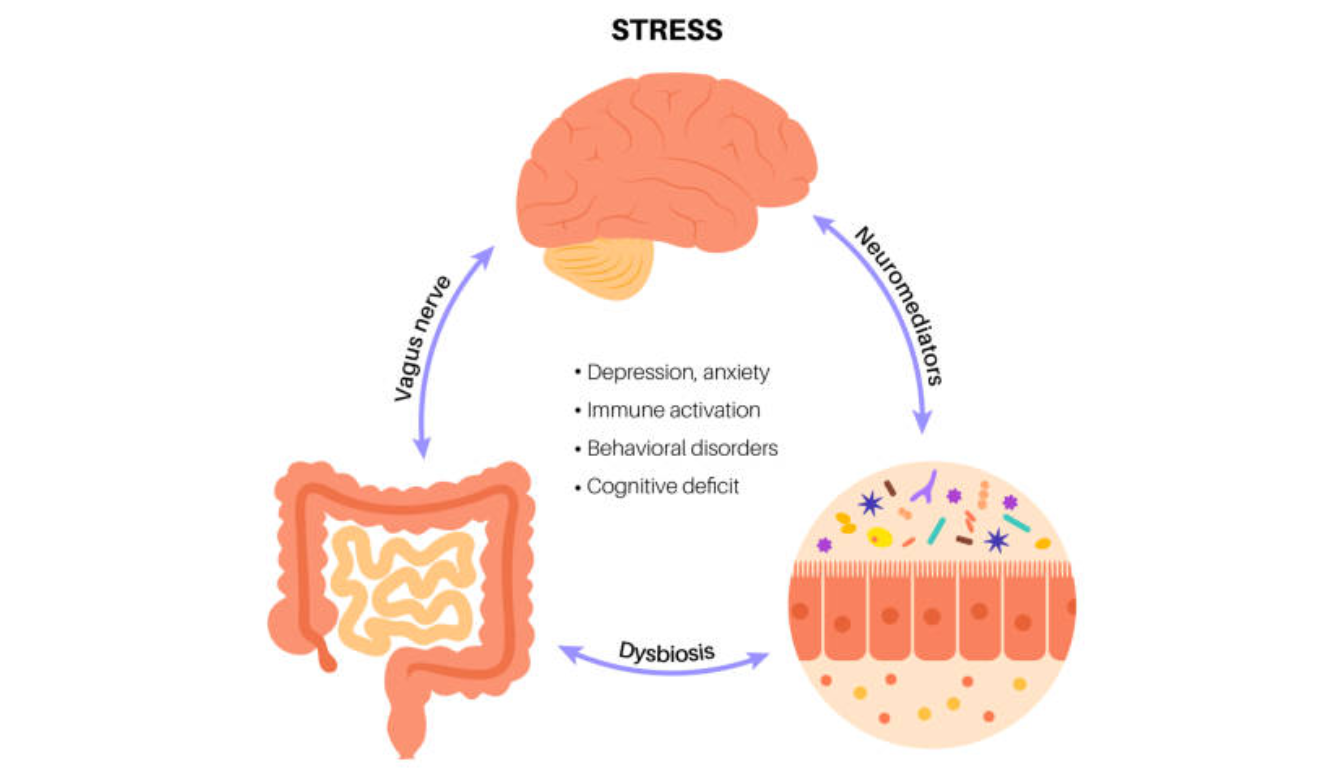 Symptoms of an Imbalanced Gut Microbiome
Symptoms of an Imbalanced Gut Microbiome
People experiencing dysbiosis often report uncomfortable symptoms such as bloating, gas, and digestive discomfort. However, the effects of dysbiosis go beyond digestive issues. It can impair nutrient absorption and increase inflammation, making it harder for your body to recover after physical exertion. This highlights another way gut health influences post-recovery: an imbalanced gut slows the body’s healing process and energy replenishment.
Effects of Dysbiosis on Muscle Repair and Inflammation
When gut health is compromised, muscle repair becomes challenging due to elevated inflammation and poor nutrient absorption. As a result, recovery times are prolonged, leaving you feeling fatigued and sore for extended periods. This inefficiency affects your day-to-day energy and heightens the risk of injury, as incomplete recovery can weaken muscles and increase strain.
| Issue | Impact on Performance | Solution |
|---|---|---|
| Chronic Stomach Pain | Prolonged discomfort, affecting training consistency | Gut health protocol with supplements |
| GI Distress during exercise | Impaired nutrient absorption, slower recovery | Blood diversion management, balanced diet |
| Dysbiosis | Bloating, constipations, mental function issues | Probiotic and prebiotic intake, dietary changes |
| H. Pylori Infection | Compromised gut barrier, increased inflammation | Supplements regimen, PhysiVāntage Greens |
Real-Life Case Study: Recovery Through Gut Health
Consider the story of an individual who struggled with dysbiosis due to a poor diet and high-stress levels. The imbalance in their gut microbiome resulted in frequent illness, prolonged recovery times, and overall fatigue. Their physical performance and general well-being suffered greatly.
They restore balance in their gut after making dietary changes, including adding fermented foods, fiber, and probiotics. Within a few months, they experienced faster recovery, reduced muscle soreness, and a noticeable improvement in energy levels. This real-life example illustrates the profound impact of gut health on post-recovery, showing that a well-functioning gut can significantly boost recovery times and overall vitality, whether you’re an athlete or simply striving for a healthier lifestyle.
The Role of Alcohol in Gut Health: A Silent Disruptor
While dysbiosis is a well-known barrier to efficient recovery, one of the most significant and often overlooked contributors to this gut imbalance is alcohol. Just as dysbiosis disturbs the delicate balance of gut bacteria, excessive alcohol consumption can amplify these disruptions, further hindering your body’s ability to heal and recover. The connection between alcohol and gut health is receiving increasing attention, especially among those aiming to stay fit and maintain a healthy lifestyle.
Let’s explore how alcohol’s impact on gut bacteria fuels bacterial overgrowth and dysbiosis and how these changes can ripple through your system, slowing down your recovery process.
Alcohol’s Effects on Gut Bacteria and Recovery
Alcohol significantly alters the composition of the gut microbiome. It affects digestion and overall health, influencing how well your body recovers after physical exertion. For fitness enthusiasts and those focused on well-being, understanding the interaction between alcohol and gut microbes is essential for making informed choices that support recovery and long-term health.
Bacterial Overgrowth and Dysbiosis: Alcohol’s Double Threat
As we’ve seen, gut health is vital in everything from muscle repair to managing inflammation. However, perhaps the most practical way to support your gut’s recovery abilities is through the foods you eat. Adopting a gut-friendly diet is key to truly maximizing how your gut health influences post-recovery. The nutrients you provide to your body through food can either promote healing or, if ignored, slow down the recovery process.
In the next section, we’ll explore the critical foods that nourish your gut and help optimize recovery. These foods will ensure that you feel stronger, more energized, and ready for whatever comes next.
Essential Foods to Support Gut Health
A gut-friendly diet is full of whole foods, fiber, and fermented products. Why is this important? Because these foods give your good gut bacteria the fuel they need to grow. For example, fiber from fruits, vegetables, and whole grains feeds your gut microbes, helping them thrive and support digestion. Fermented foods like yogurt, kefir, and sauerkraut add live bacteria to your gut, increasing its diversity. This balance is key to improving how gut health boosts post-workout recovery.
 Role of Fiber, Fermented Foods, and Nutrient-Rich Diets
Role of Fiber, Fermented Foods, and Nutrient-Rich Diets
Whether you’re trying to stay active or recover from an intense workout, prioritizing fiber-rich foods and fermented items can significantly reduce inflammation and improve digestion. In addition, nutrient-dense foods like leafy greens, lean proteins, and healthy fats are essential building blocks for muscle repair and overall recovery. These foods ensure that your body has what it needs to heal effectively while supporting gut health, which significantly influences how quickly you bounce back from physical exertion.
Probiotics—live bacteria that directly benefit the gut—are essential for digestion, inflammation reduction, and immune support, all critical for post-recovery. Combined with prebiotics and fibers that feed good bacteria, you create a synergistic effect that optimizes gut health. This combination can significantly enhance how gut health influences post-recovery, ensuring your body is fully equipped to recover faster and more efficiently.
Prebiotic Foods to Support Healthy Gut Bacteria
Prebiotics play a crucial role in feeding the beneficial bacteria in your gut, helping them thrive and multiply. Foods rich in prebiotics, such as garlic, onions, and bananas, ensure that your gut remains balanced, enabling it to support recovery better. By incorporating prebiotics and probiotics into your diet, you can maximize the impact of gut health on post-recovery, keeping your body strong and resilient.
Exercise and Gut Health: A Symbiotic Relationship
As we’ve explored, maintaining a balanced gut through proper nutrition is crucial in how gut health influences post-recovery. But it’s not just what you eat that affects your gut—how you move matters, too. Exercise and gut health share a symbiotic relationship, where physical activity can improve gut function, but overexertion may create stress on your digestive system. Understanding this balance can help you make better decisions about your fitness routine and gut health.
Benefits of Fermented Foods
How Regular Exercise Benefits Gut Microbes
Regular exercise does more than strengthen your muscles and improve cardiovascular health—it also positively impacts your gut. Engaging in consistent physical activity can increase the diversity of your gut microbes, leading to better digestion, enhanced immune function, and more effective nutrient absorption. People who incorporate moderate exercise into their routines often experience a stronger, more resilient gut microbiome, which significantly improves how gut health influences post-recovery. A more diverse gut microbiome allows your body to handle physical exertion better, ensuring that both your digestive system and immune response are in top shape after workouts.
| Factors | Results |
|---|---|
| Regular Exercise | Enhances microbial diversity |
| Healthy Gut Microbiome | Optimizes nutrient absorption |
| SCFA Production | Improves colon health |
Staying active makes our gut healthier, and a healthy gut boosts our exercise performance. This shows how fitness and a well-balanced microbiome work together for better health and faster recovery.
The Effect of Exercise-Induced Stress on Gut Health
However, while regular exercise benefits gut health, there’s a fine line between moderate activity and overtraining. Excessive endurance exercise or intense training without proper recovery can stress the gut significantly, potentially leading to gastrointestinal discomfort or even inflammation. This is why it’s essential to balance your exercise routine. A well-balanced combination of exercise and nutrition will support your gut and prevent the adverse effects of overexertion.
Understanding how gut health influences post-recovery allows you to optimize your workout intensity and dietary habits to ensure a healthier gut, faster recovery, and improved overall well-being.
Stress Management and Its Influence on Gut Health
While diet and exercise are often seen as the primary factors in recovery, one critical element is frequently overlooked: stress. Managing stress is essential to maintaining a healthy gut, especially regarding how gut health influences post-recovery. Chronic stress doesn’t just affect your mind; it profoundly impacts your digestive system, with the gut-brain axis playing a key role in this connection.
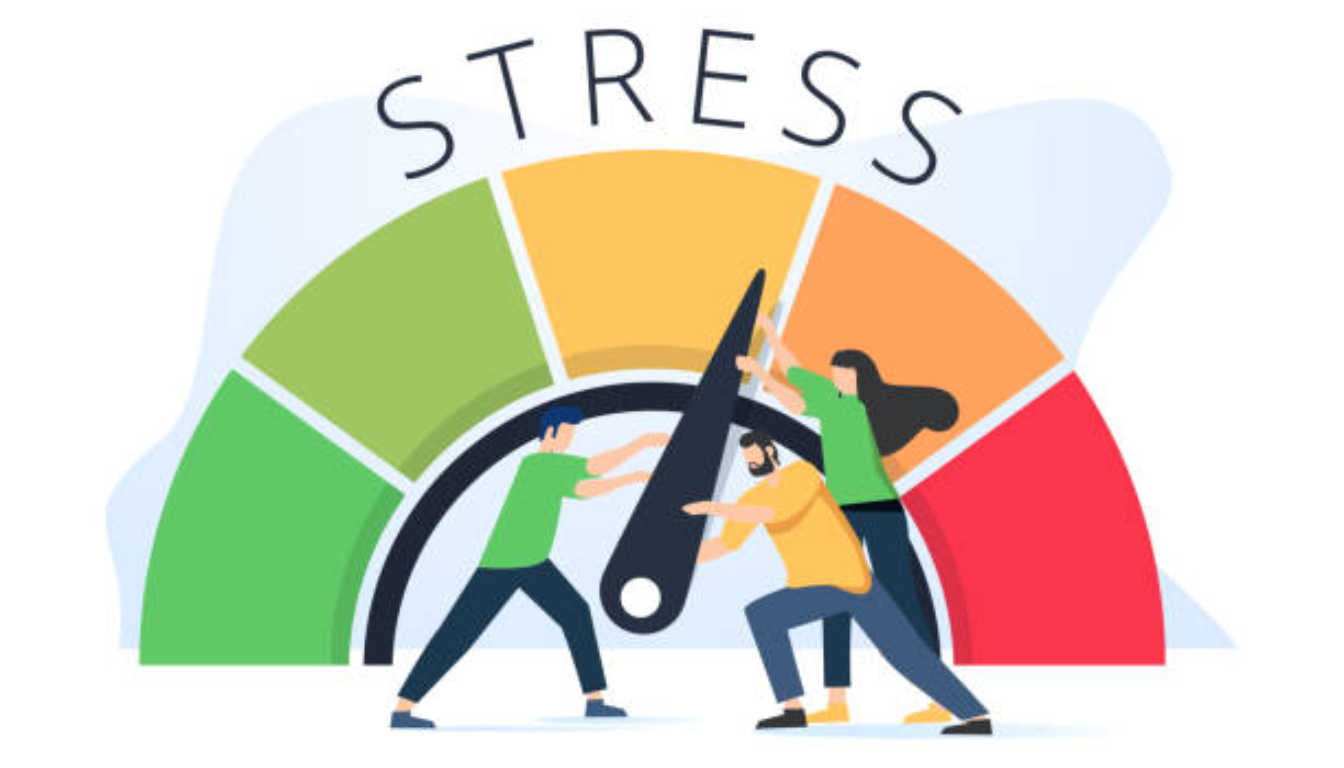 The Gut-Brain Axis and Stress Response
The Gut-Brain Axis and Stress Response
The gut-brain axis is a robust communication network that links your digestive system and brain, allowing them to interact in response to external factors like stress. When you experience chronic stress, your body releases cortisol—a hormone that can wreak havoc on your gut health. Elevated cortisol levels lead to increased gut permeability, or a “leaky gut,” where the gut lining weakens. This can make nutrient absorption difficult, increase inflammation, and slow your body’s ability to recover from physical or mental exertion.
This breakdown in the gut’s integrity affects how gut health influences post-recovery, as stress weakens the body’s resilience, making it harder to recover from exercise or other stressors. Managing stress is critical to ensuring your gut can function optimally during recovery.
| Aspect | Effect of Stress |
|---|---|
| Gut Microbiome | Disruption and imbalance |
| Inflammation Levels | Increased due to leaky gut |
| Muscle Repair | Impairment |
| Gut Permeability | Heightened due to cortisol |
Strategies for Reducing Stress to Improve Gut Health
Incorporating stress-reduction techniques into your daily life is crucial to prevent stress from negatively impacting your gut health. Mindfulness, yoga, and deep breathing lower cortisol levels, promoting gut healing and reducing inflammation. These activities calm the gut-brain axis and help maintain a strong gut lining, ensuring your gut remains resilient during recovery.
Integrating these practices into your routine can enhance how gut health influences post-recovery, allowing you to recover faster, with less inflammation and improved muscle repair. Whether dealing with life’s daily stresses or physical strain, reducing stress is critical in optimizing recovery and supporting your gut health.
Gut Health and Sleep Quality for Enhanced Recovery
We’ve explored how stress, diet, and exercise impact gut health and recovery, but another critical factor often gets overlooked: sleep. The quality of your sleep can directly affect how gut health influences post-recovery. Sleep and gut health are deeply connected; when either is out of balance, it can disrupt the recovery process.
Connection Between Gut Health and Sleep Cycles
producing hormones like melatonin, which controls your sleep-wake cycle. A healthy gut helps balance these hormone levels, leading to restful and restorative sleep. On the other hand, poor sleep negatively impacts your gut’s microbial diversity, creating a cycle where inadequate rest leads to gut imbalances, further disrupting your sleep.
This connection underscores how gut health influences post-recovery. Proper sleep allows your body to heal, repair muscles, and reduce inflammation after exertion. Without adequate sleep, recovery slows down, leaving you more vulnerable to fatigue and injury.
The Role of Microbiome in Hormone Regulation and Rest
A thriving gut microbiome supports not just melatonin production but other critical hormones like serotonin, which regulate mood, stress, and inflammation—all factors that affect recovery. You can enhance sleep quality by improving gut health through diet and lifestyle choices. Better sleep promotes faster muscle repair, clearer thinking, and overall well-being.
This demonstrates yet another way that gut health influences post-recovery, as the symbiotic relationship between sleep and gut health directly impacts recovery. When sleep is optimized, so is gut health, making your body better equipped to recover from physical and mental stress.
Supplements for Gut Health in Recovery
After exploring how diet, exercise, sleep, and stress play pivotal roles in how gut health influences post-recovery, it’s time to look at another powerful tool: supplements. While a balanced diet is essential, supplements can provide additional support to help your gut function optimally during recovery.
Best Supplements to Boost Gut Health
Certain supplements can make a big difference in maintaining a healthy gut and speeding up recovery. Probiotics, for example, are live beneficial bacteria that can help replenish your gut microbiome, especially after stress, illness, or intense physical activity. By restoring balance, probiotics improve digestion, reduce inflammation, and enhance immune function—all crucial for faster recovery.
Conversely, prebiotics are fibers that feed the beneficial bacteria already living in your gut. By providing this “fuel,” prebiotics ensure your gut bacteria thrive, enabling them to efficiently support digestion and nutrient absorption. This, in turn, improves how your gut health influences post-recovery, allowing for quicker healing and energy restoration.
Digestive enzymes are another supplement that can aid in the recovery process. These enzymes help break down food more efficiently, ensuring that your body absorbs the maximum nutrients needed for muscle repair and inflammation reduction. When digestion is optimized, it directly contributes to how gut health influences post-recovery, promoting overall physical and mental well-being.
How to Incorporate Probiotics, Prebiotics, and Digestive Enzymes
While these supplements can significantly improve your gut health, it’s essential to incorporate them wisely. Before starting any new supplement regimen, consult a healthcare provider or nutritionist. They can help tailor a plan that aligns with your health needs and fitness goals, ensuring the supplements complement your diet and exercise routine.
Taking the right combination of supplements at the correct times can maximize how your gut health influences post-recovery, leading to better muscle repair, less fatigue, and faster recovery times. Whether you’re new to fitness or an experienced athlete, the right gut health supplements can enhance your recovery and overall performance.
Practical Steps to Support Gut Health
A healthy gut is essential for optimal post-workout recovery. The gut plays a key role in nutrient absorption, inflammation regulation, and muscle repair, all critical after exercise. A balanced gut microbiome can speed up muscle recovery and reduce soreness.
Eating a diet rich in fiber and fermented foods
- Fiber helps nourish your gut bacteria, while fermented foods introduce live beneficial microbes to diversify your gut microbiome. Adding more fruits, vegetables, whole grains, and fermented options like yogurt and kimchi can significantly improve how your gut health influences post-recovery by supporting nutrient absorption and reducing inflammation.
Reducing stress through mindfulness and relaxation techniques
- Chronic stress can negatively impact your gut and overall health. Practices like mindfulness, meditation, or simple breathing exercises can reduce cortisol levels and keep your gut functioning smoothly. Lower stress levels translate to better gut health, enhancing your body’s ability to recover faster.
Incorporating regular exercise that isn’t overly strenuous
- While exercise is great for gut health, excessive or high-intensity workouts can stress the digestive system. Finding a balanced exercise routine that includes moderate activity—like walking, cycling, or yoga—supports your gut microbiome and improves how gut health influences post-recovery, ensuring you recover more efficiently.
Getting adequate sleep for optimal recovery
- Sleep is when your body repairs and rejuvenates itself, and your gut plays a crucial role in regulating sleep cycles. Prioritizing 7-9 hours of restful sleep each night allows your gut to support recovery processes like muscle repair and immune function. By improving your sleep, you directly enhance how gut health influences post-recovery.
Long-Term Benefits for Athletic Performance and Wellness
Consistently supporting gut health allows your body to recover more efficiently after physical exertion. Faster recovery and reduced inflammation are key benefits of a balanced gut microbiome, which helps muscles heal quickly and keeps inflammation in check. This process reduces the risk of long-term damage, keeping you active and lowering injury risk.
The gut-brain axis also plays a crucial role in mental health. A healthy gut produces neurotransmitters like serotonin, which regulate mood and stress. Maintaining gut health boosts physical recovery and strengthens mental resilience, helping you stay focused and motivated on your fitness journey.
In the long run, gut health becomes vital for consistent performance and overall well-being. Prioritizing gut health leads to lasting improvements in physical and mental performance, including stronger immunity, quicker recovery, and a balanced mental state.
FAQ
Q: What is the gut microbiome, and how does it impact fitness recovery?
A: The gut microbiome is home to about 100 trillion microbes. These play a big part in how we digest food, think, fight off sickness, and make energy. A healthy gut helps us use food for energy better and heal faster after exercise.
Q: How does gut health influence overall wellness?
A: Good gut health is vital for our overall well-being. It influences how we fend off diseases, create energy, and keep swelling down. Our gut turns certain fibers into substances that keep us safe and lower swelling. This balance is crucial for avoiding health problems and maintaining a strong body.
Q: What is the relationship between dysbiosis and physical performance?
A: Dysbiosis means our gut bacteria are out of balance. It may cause bloating, tiredness, and confusion. This imbalance can drag our physical abilities down by messing with our energy and recovery speed. Keeping our gut bacteria balanced can help us stay fit and perform better.
Q: What dietary changes can support gut health and fitness recovery?
A: To help our gut, we should eat more fiber from veggies, grains, and beans. We should also eat fermented foods like yogurt and kefir for good bacteria. Cutting back on heavily processed foods keeps our gut diversity up and inflammation down.
Q: How does the gut-brain axis affect stress and gut health?
A: The gut-brain axis connects our gut and brain. Stress increases cortisol, which makes our gut leaky. This leakage can cause body-wide swelling and upset our gut. So, handling stress’s key to keeping our gut and ourselves happy.
Q: How does alcohol consumption impact gut bacteria?
A: Drinking too much alcohol can upset our gut bacteria balance and cause discomfort like bloating and stomach pain. It hurts good bacteria and slows down how we make digestive juices. This messes with how well we absorb nutrients and keep our gut healthy.
Q: What are the benefits of exercise on gut health?
A: Working out regularly improves our gut microbes. It bumps up helpful bacteria and produces more helpful acids. These changes help us with energy, fight sickness, and get over workouts faster. Exercise and gut health support each other nicely.
Q: How can physical activity influence gut microbiota diversity?
Q: What practical steps can be taken to improve gut health and enhance fitness recovery?
A: We can eat more fiber, enjoy fermented snacks, take probiotics and prebiotics, and exercise. These steps help keep our gut bacteria happy. This helps with better digestion and healing after we work out.
Q: How does gut health contribute to stress management?
A: A well-balanced gut helps us control how stressed we feel by managing swelling and stress effects. Eating right and doing activities good for our gut can fight stress-related gut issues, keeping our minds and bodies strong.
Q: What is the gut-muscle axis hypothesis?
A: This idea links our gut bacteria to muscle health. Varied gut bacteria help fix and recover muscles after exercise. But gut swelling can slow down muscle repair. So, keeping our gut healthy is vital for better muscle repair and getting fit again.
Q: Why is maintaining gut health essential for fitness recovery?
Source Links
Benefits of Exercise on Gut Health
- Why a workout is good for your gut bacteria
- Why fixing your gut health could be the key to a better workout
- Exercise Modifies the Gut Microbiota with Positive Health Effects
- The Role of Gut Health in Fitness and Overall Wellness
- How Gut Health Affects Training, Recovery, and Performance
- The Athlete Gut Microbiome and its Relevance to Health and Performance: A Review
- Gut Microbiota, Probiotics and Physical Performance in Athletes and Physically Active Individuals
- The Effect of Exercise Prescription on the Human Gut Microbiota and Comparison between Clinical and Apparently Healthy Populations: A Systematic Review
- Understanding the Connection Between Gut Health and Fitness: Are Probiotics and Fermented Foods Game-Changers?
- The Connection Between Physical Exercise and Gut Microbiota: Implications for Competitive Sports Athletes
- The Relationship between Physical Activity, Physical Exercise, and Human Gut Microbiota in Healthy and Unhealthy Subjects: A Systematic Review
- Gut Health and Fitness: Understanding the Connection for Overall Wellness
- Frontiers | Interplay Between Exercise and Gut Microbiome in the Context of Human Health and Performance
- 7 Surprising Ways Your Gut Health Affects Your Fitness | Hyperbiotics
- Why fixing your gut health could be the key to a better workout
Diet and Lifestyle Impacts on Gut Health
- The Impact of Diet and Lifestyle on Gut Microbiota and Human Health
- Influence of Foods and Nutrition on the Gut Microbiome and Implications for Intestinal Health
- Gut microbes and muscle function: can probiotics make our muscles stronger?
- Gut-Muscle Axis Exists and May Affect Skeletal Muscle Adaptation to Training
- How Gut Health Influences Muscle Health: Strengthening the Connection | Kefir Lab
Alcohol’s Effect on Gut Health
- How Drinking Alcohol Impacts Your Gut Health and Healing Progress — GutFit Nutrition
- Here’s How Long It Takes for Alcohol To Impact Your Gut Microbiome
Exercise and the Gut-Brain Axis
- Exercise-induced stress behavior, gut-microbiota-brain axis and diet: a systematic review for athletes
- Exercise Effects on Gut-Brain Axis | Metagenics Institute
Systematic Reviews on Gut Health and Physical Activity
- Physical activity induced alterations of gut microbiota in humans: a systematic review – BMC Sports Science, Medicine and Rehabilitation
- Effects of exercise and physical activity on gut microbiota composition and function in older adults: a systematic review – BMC Geriatrics
Tools and Tips for Improving Gut Health
- 6 Key Tools to Improve Your Gut Microbiome Health
- Key Steps You Can Take to Improve Gut Health – Total Balance Physical Therapy
- Healthy Gut for Life: Healthy Habits for Whole-body Health
Additional Research on the Gut and Fitness Connection
- Exploring the Connection Between Gut Health and Exercise | Hello Fitness Magazine
- The Surprising Connection Between Gut Health and Fitness
- Is There a Universal Endurance Microbiota?
- Interplay Between Exercise and Gut Microbiome in the Context of Human Health and Performance
- The athletic gut microbiota
Tools and Tips for Improving Gut Health
Belli Health
Thanks for your feedback and happy you found value in this post.















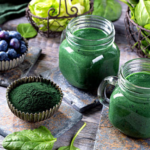
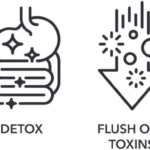
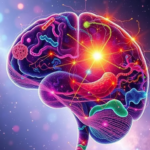


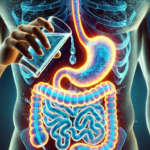

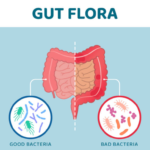

















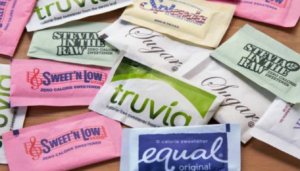


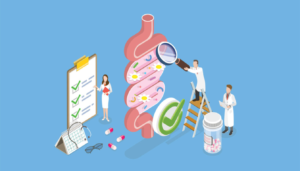

2 comments